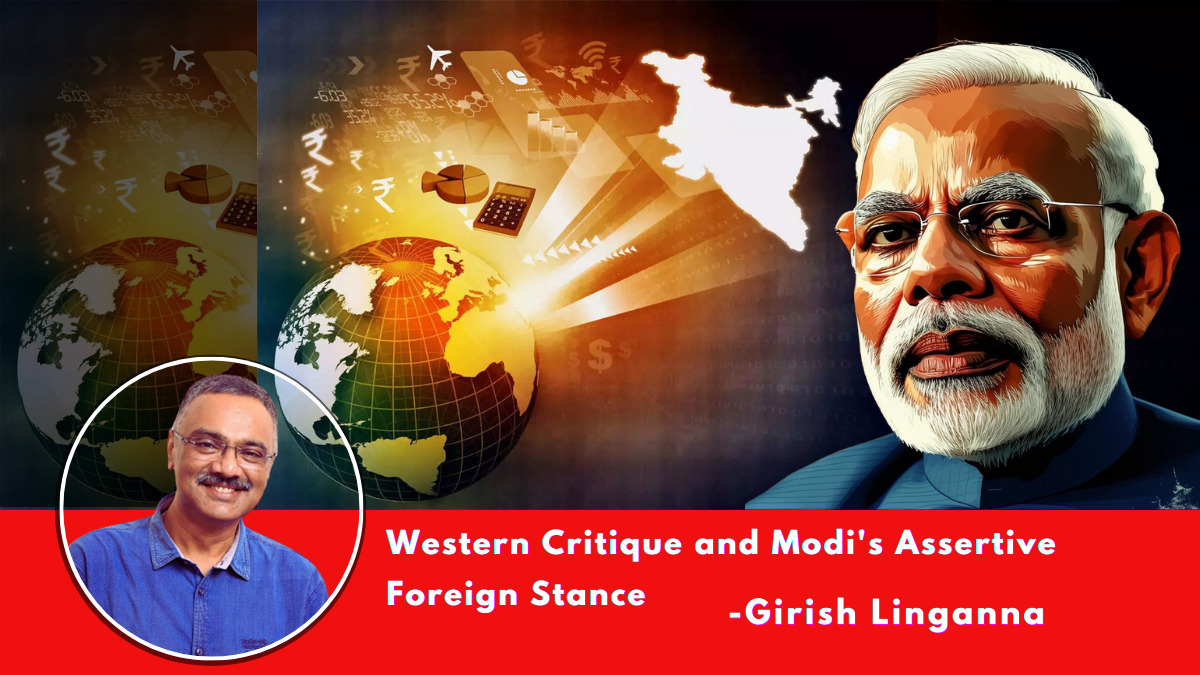There has been a noticeable increase in criticism of PM Modi in the US during the current Lok Sabha elections. Indian commentators believe that the US is apprehensive about the possibility of the BJP-led alliance winning more than 400 out of 543 seats in parliament.
In India, there’s an increasing awareness that the West’s intense scrutiny and comments on domestic issues signify unease with the potential for a more robust mandate for Prime Minister Narendra Modi.
At a press conference in Guwahati on Tuesday (30th April), Indian Home Minister Amit Shah stated confidently that the National Democratic Alliance (NDA), led by the Bharatiya Janata Party (BJP), is poised to secure more than 400 of the 543 seats in the ongoing Lok Sabha elections, which will conclude on June 4.
Shah mentioned that the BJP and its allies are expected to win over 100 of the 191 seats that were up for grabs in the first two phases of the seven-phase election.
At the same time, Modi has repeatedly highlighted the need for a “stable” government in India during his campaign speeches.
During an election rally last week, Modi stated, “If India becomes strong, it will disrupt the plans of certain powers… This is why these powers prefer a weak Congress and I.N.D.I.A (the opposition alliance) government in the country,” amid rising concerns about Western “interference” in Indian elections.
Similarly, External Affairs Minister S Jaishankar criticized Western media’s take on Indian democracy, noting that they act like “political players” in the Indian elections.
According to Sputnik, a Russian media outlet, the Western critique of Modi primarily focuses on purported human rights abuses in India, accusations of extraterritorial assassinations, the treatment of Muslims under the BJP government, doubts about the fairness of the judiciary and law enforcement, and concerns over the electoral process.
In addition to Western media and official statements from the US and Germany, American civil society organizations and universities are also planning or have held events to discuss these issues.
Dr. Gulrez Sheikh, a geopolitical analyst and TV commentator, explained to Sputnik that the United States and other Western nations have been unable to influence India’s foreign policy, which has remained strategically independent under Prime Minister Modi’s decade-long leadership.
Prime Minister Modi is correct in his assertion that certain international forces prefer a weak government in India that they can easily influence, according to comments made to Sputnik. Western countries often back governments they can control, but under PM Modi, India has enjoyed a stable and strong government, which accounts for their current reactions. Dr. Gulrez Sheikh explained these dynamics in his discussion with Sputnik.
Sheikh also mentioned that Western powers are unlikely to succeed in sparking a “color revolution” or a “regime change” in India as they have in other nations.
Regarding the upcoming elections, Sheikh speculated that it was quite plausible for the BJP-led alliance to secure over 400 seats, though he emphasized that this matter is strictly a domestic affair for India.
The U.S. and other Western countries aim to make India subservient (or submissive) to their interests, as they typically favor compliant nations or governments, Dr. Gulrez Sheikh explained. He noted that these powers struggle with accepting countries that embody true democracy and freedom, often undermining such democracies to serve their own national, geopolitical, and economic agendas.
Geopolitical analyst Qamar Agha, who has been tracking Indian foreign policy since the Cold War, shared with Sputnik that the U.S. is actively trying to gain advantages from India in various areas, from swaying (or influencing) its foreign policy to accessing its markets for American businesses.
Western countries have historically tried to influence India to align with their foreign policies, including recent pressures to change its neutral stance on the Ukraine conflict. However, Agha emphasized that New Delhi will prioritize its national interests. While India is committed to seeking peace in Ukraine, it will not compromise its relationship with Russia to side with the West.
Agha pointed out that India’s continued partnership with Russia amid the Ukraine conflict has been a significant irritant in its relations with the Biden administration.
“Russia has proven to be a steadfast ally of India. It’s crucial for any Indian government to maintain our relationship with Russia, especially now as it becomes a major oil supplier to India,” Agha stressed.
He further emphasized that the defense relationship will persist, with an emphasis on joint ventures under the ‘Make in India’ initiative, as previously agreed by both countries.
However, Agha emphasized that India’s foreign policy would largely remain unchanged, even if the Modi government secures a majority of over 400 seats, a milestone previously reached only by Rajiv Gandhi. In 1984, after the assassination of his mother and predecessor, Indira Gandhi, Rajiv Gandhi’s Congress won 404 seats.
Agha noted, “There’s a mix of continuity and change. India’s foreign policy, which maintains strategic autonomy towards the US and Russia, will not see any major shifts.”
He pointed out that the US and Western Europe are key sources of foreign investments and advanced technologies for India, as it aims to become a global manufacturing leader and create jobs for its large youth population.
Agha also mentioned that the Reserve Bank of India’s recent ‘State of Economy’ report lists the US, the Netherlands, and Japan among India’s top five foreign investors. Additionally, he noted that India is poised to receive $100 billion in investments from the European Free Trade Association (EFTA), following a new free trade agreement signed this year.
(Views expressed in the article are of author’s own and do not reflect the editorial stance of Business Upturn)


